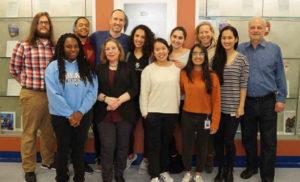Spearheading the campaign through art, photo exhibitions
In 1994, several paintings and photographs produced by school children in Kenya were exhibited at the United Nations headquarters in New York. The materials on display captured different aspects of Kenyan life including, cultures, politics, and wildlife. Although the exhibition did not result in instant financial gains for the children, those who viewed the works were impressed by the immense talent.
The event became an eye-opener for Mark Scheflen, a New York-based philanthropist who had worked with the children from Machakos and Makueni districts in creating the materials for the show.
The audience’s responses reinforced Scheflen’s desire to initiate a project that would showcase art from different parts of the world.
A cultural exchange program involving more than 50 participants from the US, Russia, South Africa, and Kenya was, therefore, launched with exhibitions held at various centers in the countries. Participants who included families with handicapped children, students, senior citizens, and artists documented their lives through masks, photo diaries, and video interviews. This led to the birth of Kiboko Projects, a cultural organization in New York.
Scheflen, who had co-founded the project, returned to Kenya in 1999 and later organized another successful display of other materials at various shows in the US. Audiences were moved by the messages depicted by the children through their works.
Scheflen is back in the country, this time with an anti-Aids campaign. He and Kiboko’s executive director, Jill Raufman, have been working on a strategy to supplement the government’s efforts and other organizations in combating the spread of the disease.
The project has already taken off at St Nicholas, Moi Forces Academy (Nakuru), and St Agustine schools.
The involvement of schools is part of a wider program designed to create a viable cultural link between Kenyan children and other groups across Africa, America, and Europe.
Similar programs have been launched in poor townships in South Africa and Russia.
“This is our effort to establish new communication channels among different social groups,” says Scheflen.
Kiboko’s efforts in the anti-Aids campaign in South Africa and Kenya have been augmented by the huge support offered by the Bush administration.
With the focus now firmly on reducing infection and offering support to those already infected, Scheflen says the use of artistic and theatrical approaches will enable the affected people “to speak about their lives”.
Raufman says slogans on Aids will be designed to create a learning link among different groups.
Kiboko has established contact with several groups in the country working with people infected and affected by Aids. The organization is set to fundraise to supplement medical bills for Aids patients.
In the Kibera slums, Nairobi, the organization has begun a program for HIV victims with the Kicoshep self-help group. YMCA has also been enlisted to ensure that many more young people are exposed to preventive measures.
“There is a need to talk openly about Aids and this is what we will be trying to encourage. Let families discuss the scourge and overcome this stigma,” she says.

